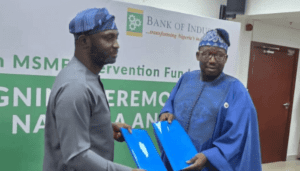Okonjo-Iweala expresses concerns over FX management
The Director-General of the World Trade Organization (WTO), Ngozi Okonjo-Iweala, said on Monday that the global trade watchdog was concerned about Nigeria’s foreign exchange management and how it had been used to support manufacturing, exports and imports.
Okonjo-Iweala said some WTO members had brought complaints and that Nigeria needs to explain its foreign exchange regime to them.
The former finance minister who was in the country on her first official visit said Nigeria had invoked WTO’s agreement on balance of payment to conserve foreign exchange.
Nigeria’s balance of payment gap hit $14 billion in 2020 following a wider budget deficit triggered by a COVID-induced oil price crash that slashed revenues, weakened the naira and caused dollar shortages.
“It invoked this article but some other members have brought a complaint against us that we shouldn’t have used this article in that way,” Okonjo-Iweala told journalists at the state house after her meeting with President Muhammadu Buhari.
“So, yes, the WTO is concerned about foreign exchange, the way we manage it and how we use it to support manufacturing, export and import in our economy.”
The Central bank of Nigeria (CBN) is seeking to conserve its dollar reserves, curbed access to the interbank market for a wide range of importers to boost local production. It set up a multiple currency regime in 2015 to manage pressure on the naira.
Since the introduction of the forex policy, some firms have defaulted on contracts, lost credit lines and have had to deal with foreign suppliers worried that they won’t get paid while the currency has lost ground against the dollar, the local chamber of commerce has said.
Okonjo-Iweala said she would meet the Central Bank of Nigeria (CBN) governor, Godwin Emefiele to discuss some of the issues.
The CBN has favoured a strong naira, a policy backed by President Buhari, who sees it as a matter of national pride.
The bank has argued that a weaker naira will stoke inflation which has been in double digit since 2016.
The central bank has rejected calls for a more flexible currency, which the International Monetary Fund and the World Bank has said will help Nigeria absorb future shocks.
But the bank has battled to keep up with dollar demand as past due obligations for importers pile up and foreign investors struggle to repatriate funds.




